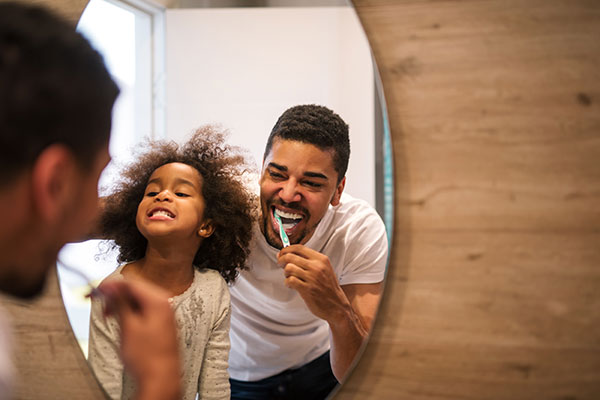


 You can still get emergency dentistry services during the coronavirus. However, it is better to prevent an urgent oral health issue from happening in the first place. This will allow an emergency dentist to help those who most need it. Keep reading to learn a few ways you can avoid a dental emergency.
You can still get emergency dentistry services during the coronavirus. However, it is better to prevent an urgent oral health issue from happening in the first place. This will allow an emergency dentist to help those who most need it. Keep reading to learn a few ways you can avoid a dental emergency.
Wear a mouthguard
Many recreational facilities, such as playgrounds and gyms, are currently closed. However, for people who have yards or other spaces, exercise can be a fun way to get outdoors. Many people do not think about the potential injuries that may result. For example, being hit in the face by a ball can knock a tooth out.
A mouthguard can prevent a patient’s teeth from becoming chipped or cracked. The barrier can also help keep the teeth from becoming displaced. When being hit in the face, the guard will act as a cushion. It can also distribute the force more evenly so that one tooth does not take all the force.
Finally, a mouthguard can prevent soft tissue injuries. Athletes can accidentally bite through the lips or cheeks when an accident happens. This can cause extensive bleeding. The mouthguard covers the teeth’s sharp edges.
Chew carefully
Everyone should chew carefully and avoid hard foods. For example, popcorn and hard candy can both cause the teeth to crack. If this happens, it is easy for bacteria to enter the split and cause an infection. Those who have dental restorations should take extra care when chewing. A loose crown or other restoration requires emergency dentistry.
Regularly take vitamins
It may be surprising, but the right vitamins can help the mouth to protect itself. Some vitamins have more benefits for a patient’s oral health. For example, both Vitamin A and B can help the gums be healthier. Being deficient in either of these supplements may lead to gingivitis. These vitamins help the body fight gum disease.
Many people know that Vitamin C helps support the immune system. This includes benefiting oral health as well. People who do not consume enough Vitamin C are more likely to develop infections and gum disease. Dark leafy greens and citrus fruits are both good options for getting this supplement.
Vitamin D is important to help the teeth stay in the sockets. Going for a walk each day can expose patients to the sun. This helps the body naturally create Vitamin D. To get enough nutrients, patients can take supplements for each type of vitamin. Multivitamins also work to help patients get everything all at once. It is important to check with a doctor before beginning any supplements.
Choose emergency dentistry if needed
Dental emergencies can be avoided by following these guidelines. Taking vitamins, protecting your teeth and chewing carefully can all be helpful. However, if you do need treatment, many offices still offer emergency care during COVID-19. Contacting your dentist can help you create a plan for a potential emergency.


